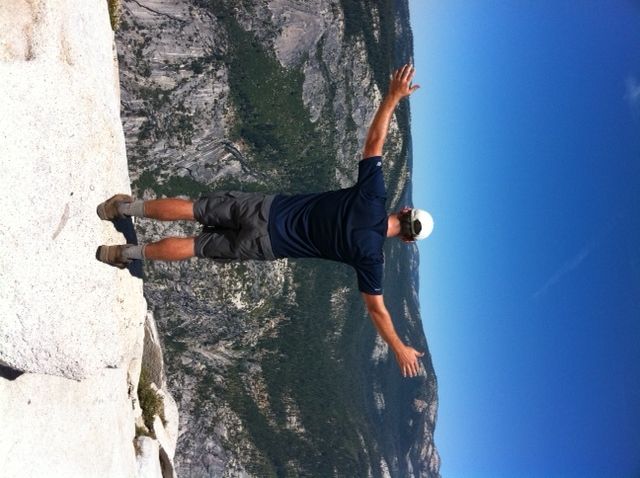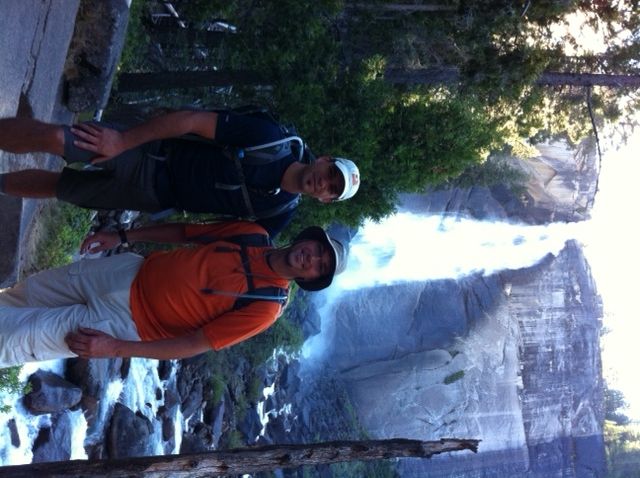By Kent Murawski
•
January 12, 2026
Nearly half of all Americans finished ZERO books last year. Reading 5 books per year puts you in the top 33 percent. Reading 10 books per year puts you in the top 21 percent. Reading 20, 30, or 40 books per year puts you in rare company — among the top 10 percent of readers. Which camp do you fall into? You see, in the past, I didn’t read much either…maybe 3-4 books per year. But several years ago, I decided to be a reader. That one decision changed my life. Since then, I’ve steadily increased the amount of time I read each day, which has led to more books read. 2025 is a bit deceiving because I read two books that were 600 pages—which is really like three books. That brings me up to about 29 books for the year. Here's what matters: It's less about the number of books you read and more about becoming a reader. Are We Getting Dumber? A recent article in the Economist highlighted some alarming trends. Multiple studies have concluded that adults, children, and teenagers are all reading less, and very small children are being read to less. Reading to my children has been one of the joys of my life. It’s such fun that I recently reinstated reading to my thirteen-year-old before bed…again. We are currently reading The Hobbit . Tolkien has lots of songs in his books, so I even dance and sing a little, too! The article bluntly states, “Reading is in trouble.”: In America, the share of people who read for pleasure has fallen by two-fifths in 20 years. That’s a 40% drop in just two decades. Sentences are getting shorter and simpler. Hundreds of NY Times bestsellers were analyzed and found that sentences in popular books have contracted by almost a third since the 1930s. Presidential speeches have dropped from postgraduate-level complexity to high-school-level in 250 years, from George Washington’s postgraduate-level score of about 28.7 to Donald Trump’s high-school-level score of about 9.4. Here’s what concerns me most: many leaders don’t read that much either, and that sets them at a significant disadvantage. Some of my best ideas come from cross-disciplinary reading or reading outside my field of expertise. No, I don’t read 50 or 100 books a year like some people. I can’t make that kind of time right now. That takes about an hour of reading per day. I read about two books per month—not to hit a number, but because I've experienced what happens when I don't. My thinking gets shallow. My creativity dries up. My leadership suffers. What Reading Actually Does for You #1 - Reading strengthens the neural pathways that make you sharp A former mentor of mine said, “Leaders are readers.” Though there are many forms of learning (podcasts, courses, etc), reading physical books does something podcasts and courses can't. Reading creates and strengthens the neural pathways your brain uses to think, process, and solve problems. When you stop reading, these pathways literally weaken. Your attention span shrinks. Your ability to think deeply deteriorates. I see this firsthand in my coaching business. Being a reader allows me to stay sharp for my clients, process complex ideas, and lead with more creativity. #2 - Reading makes you healthier My Nana was as sharp as a tack until the day she died at age 92, and one of the key memories I have is her doing crossword puzzles every time I came to her house. Reading comes with many physical and mental benefits. It has been shown to increase brain strength, empathy, sleep, and life expectancy, and decrease stress, depression, and cognitive decline as you age. All that by the simple act of reading. Seems like a small trade-off for so many benefits. I can personally attest to this. Reading makes you smarter and healthier. #3 - Reading Makes You Smarter When you read a book, you gain 2-3 years of accumulated knowledge. That’s how long the average book takes to research, write, and release. Beyond that, there are usually many more years of life experience embedded within its pages. Sir Francis Bacon, the renowned scientist and philosopher, coined the phrase “knowledge is power.” But knowledge without application is just information. Understanding is what happens when you apply what you read. When I read a book, I’m looking for relevant takeaways that apply right now , unless it’s a good fiction book that I’m reading for enjoyment. Even then, I sometimes find myself marking pages, underlining quotes, or making notes for future use. Here are five books that transformed how I think and lead in 2025. Five Books that Changed How I Think and Lead In 2025 #1 - Jobs by Walter Isaacson It's hard to summarize a person's life in one core idea, but if I had to, I'd say Jobs lived for innovation and focus. His ability to tune out the noise and stay laser-focused on the few products that would change everything was legendary. But that singular focus came at a brutal cost. Jobs could make people believe they could do the impossible—and they did. But relationships? Not his strength. Building an enduring company where people made great products was everything. "Everything else was secondary," including the people closest to him. This book gave me a vivid picture of how to stay relentlessly focused and how not to lead relationally. #2 - The Creative Act by Rick Rubin Rubin's big idea: creativity isn't a method you master—it's a way of being. Instead of giving you a step-by-step process, Rubin explores what creativity looks like through different people and forms. The book reads like a devotional, with short chapters you can absorb daily for inspiration. Each one offers a fresh perspective on creativity as something alive, ever-changing, and growing. The Creative Act helped solidify that creativity is a way of life, not just moments of inspiration. #3 - The Genesee Diary by Henri Nouwen Nouwen spent seven months at a Trappist monastery, trying to escape the frenetic pace of academia and ministry. I read the book while at the same monastery, The Abbey of the Genesee in Western, NY. What stuck with me most was this line: "When you want to hurry something, that means you no longer care about it, and want to get on to other things." That landed like a punch. Nouwen discovered that his need to achieve, to be recognized, to stay busy—all of it was disconnecting him from love itself. The Benedictine rhythm of prayer, work, and rest wasn't just a nice monastic practice. It was the antidote to a life lived detached from God and people. Nouwen wrestled with whether he could bring this slower way back into his "real life." The question haunted him: Can you live contemplatively in an active world? His honest answer: barely. But the trying matters. #4 - Three Mile an Hour God by Koyami Kosuki Koyama, a Japanese theologian, brings an Eastern perspective that shattered my Western theological assumptions. He weaves insights from Buddhism, Hinduism, and Taoism (without embracing universalism) to paint a fuller picture of God at work in the world. But the real gut punch? His unflinching examination of the injustices the Church has participated in—especially toward ethnic and religious minorities. What stuck with me: Koyama's penetrating questions left me wrestling with my own complicity. He doesn't offer easy answers or seven-step solutions. Instead, he forces you to sit with the discomfort and ask yourself: How am I participating in injustice? How do I bring God's justice into the world? Honestly? I'm still not sure. But the asking matters. #5 - Hell Yeah or No by Derek Sivers Sivers' philosophy is simple: if it's not a "hell yeah," it's a no. The book is a collection of over 60 short chapters—life wisdom condensed into bite-sized pieces you can read daily. Wide-ranging and thought-provoking, Sivers challenges you to think more deeply about what you're doing, why you're doing it, and whether it's actually worth doing at all. What stuck with me: His relentless clarity about priorities. Most of us say yes to things that are merely "fine" or "good enough," filling our lives with mediocre commitments. Sivers strips away the noise and asks the hard question: Is this a hell yeah? If not, why are you doing it? It's a gold mine for anyone drowning in obligations they never really wanted in the first place. Your RHYTHMS Check This is about your Emotional and Mental rhythms and the practices that protect your mental clarity and creative capacity. If you don't become a reader, your brain will continue weakening. Your ideas will stay shallow. Your leadership will plateau. You'll keep grinding harder while thinking slower. But if you commit to becoming a reader... you'll strengthen neural pathways that make complex thinking easier. You'll gain years of compressed wisdom from leaders who've walked ahead of you. You'll process stress better, sleep more deeply, and lead with more creativity. Your reading habits determine whether you're building mental capacity or burning it down. This week's rhythm: Choose one book that you already have and read one page today, maybe before bed or with your morning coffee. Do this for seven days straight and notice what happens to your mental clarity. When was the last time you read something that actually changed how you think—not just informed you, but transformed you? Until next time, Kent PS - My new e-book, On Becoming a Reader: Unlocking the Power of Reading , shows you how to become a reader using simple, science-backed strategies that actually work. No guilt. No overwhelm. Just one page at a time, starting today. Whenever you're ready, there are four ways I can help you... Try the 5-minute REST Assessment to identify exactly where you are on the burnout scale—from Thriving to Critical—so you can take the next right step. Transform those anxiety-filled, rushed mornings into your foundation for daily success with my course, Win the Morning, Win the Day! Schedule a Discovery Call to find out if executive coaching is for you - for business owners or executives Catalyze your organization - invite me to do a keynote or workshop Sources “Most Americans Didn’t Read Many Books in 2025,” https://yougovamerica.substack.com/p/most-americans-didnt-read-many-books Dr. Thomas H. Agrait https://www.linkedin.com/pulse/negative-impact-decline-reading-society-perspective-dr-thomas-h--bdmre/ “Is the Decline of Reading Making Politics Dumber?” https://www.economist.com/culture/2025/09/04/is-the-decline-of-reading-making-politics-dumber “Is the Decline of Reading Making Politics Dumber?” https://www.economist.com/culture/2025/09/04/is-the-decline-of-reading-making-politics-dumber “Benefits of Reading Books: How It Can Positively Affect Your Life,” https://www.healthline.com/health/benefits-of-reading-books#takeaway “What Did Francis Bacon Mean by Knowledge Is Power?” https://www.thecollector.com/francis-bacon-knowledge-is-power/
 Half Dome in Yosemite represented one of my life goals. I love what Mark Batterson said on the trip: don’t accumulate posessions, accumulate experiences (especially shared experiences).
I met some great people whom I hope to keep in touch with! I also can’t wait until I can start taking my son or daughter on trips like these!
Half Dome in Yosemite represented one of my life goals. I love what Mark Batterson said on the trip: don’t accumulate posessions, accumulate experiences (especially shared experiences).
I met some great people whom I hope to keep in touch with! I also can’t wait until I can start taking my son or daughter on trips like these! 













